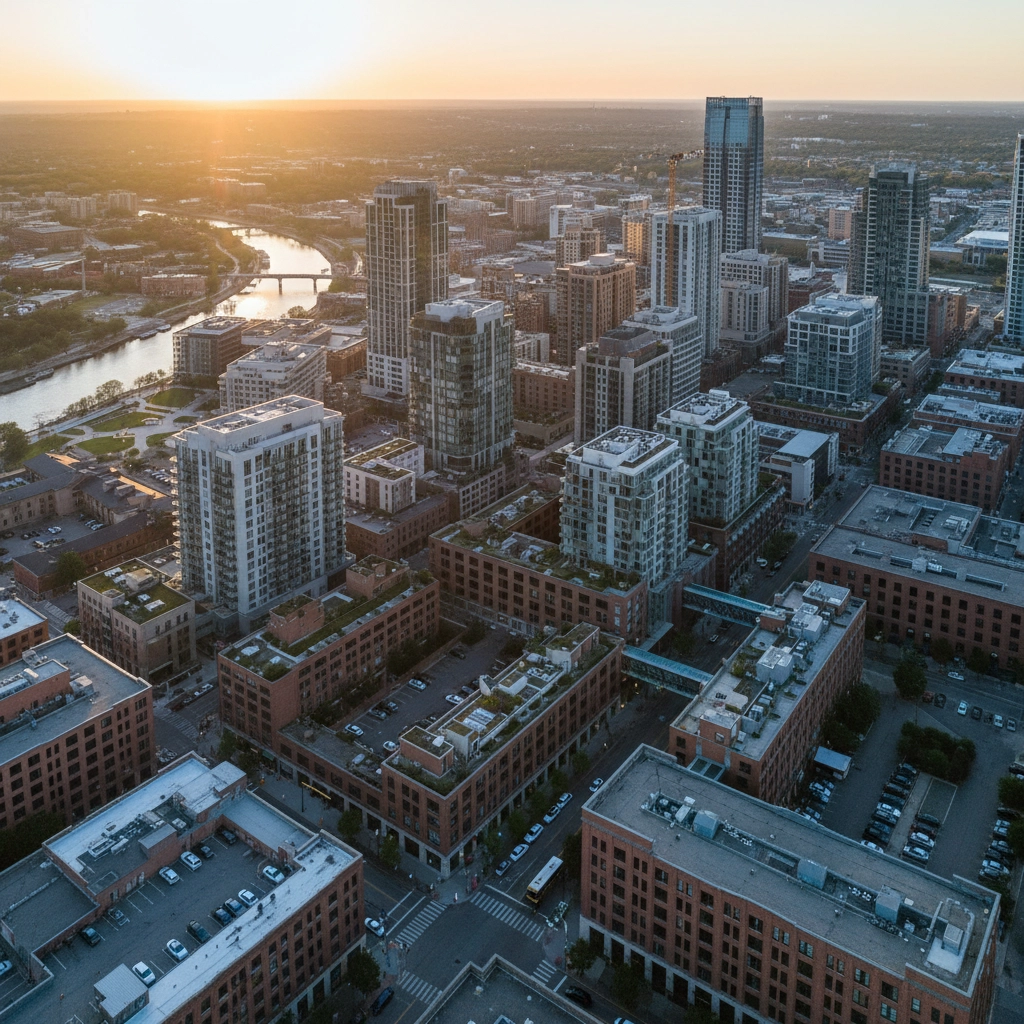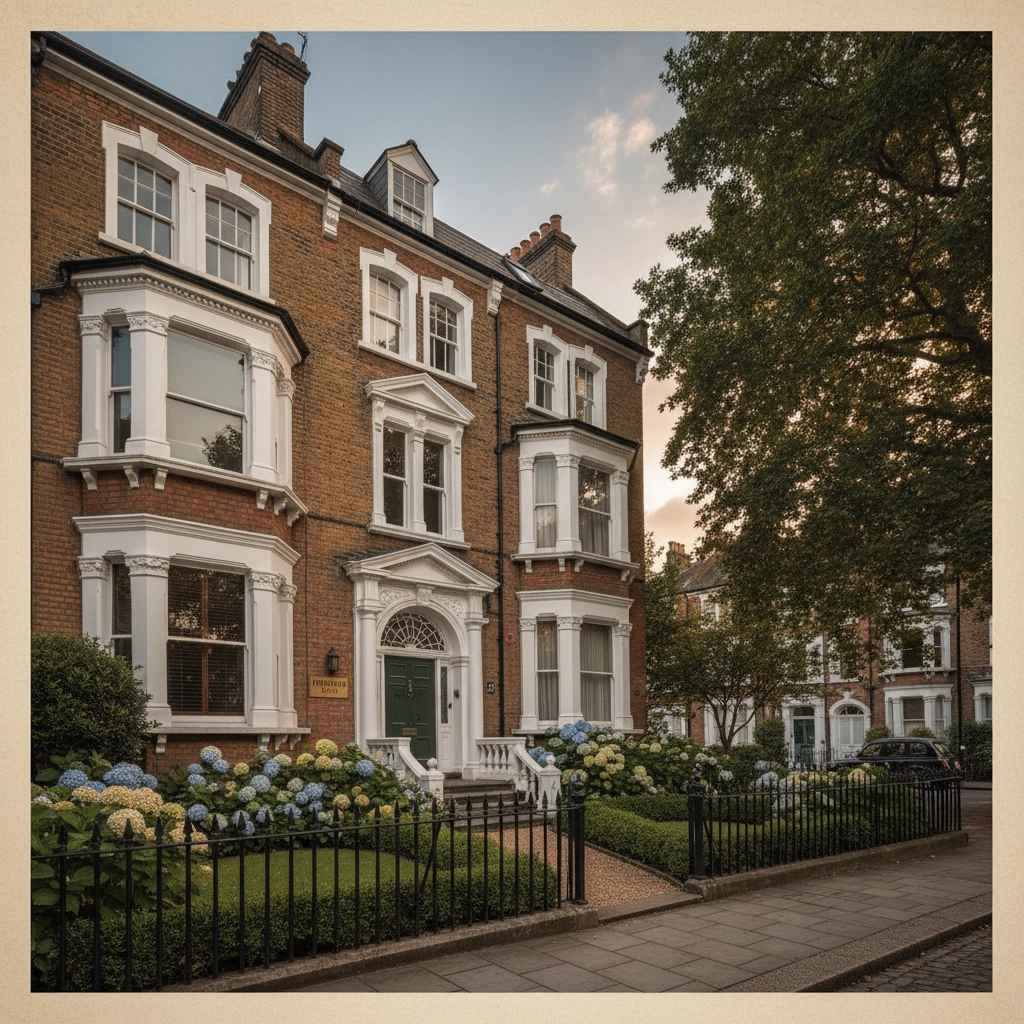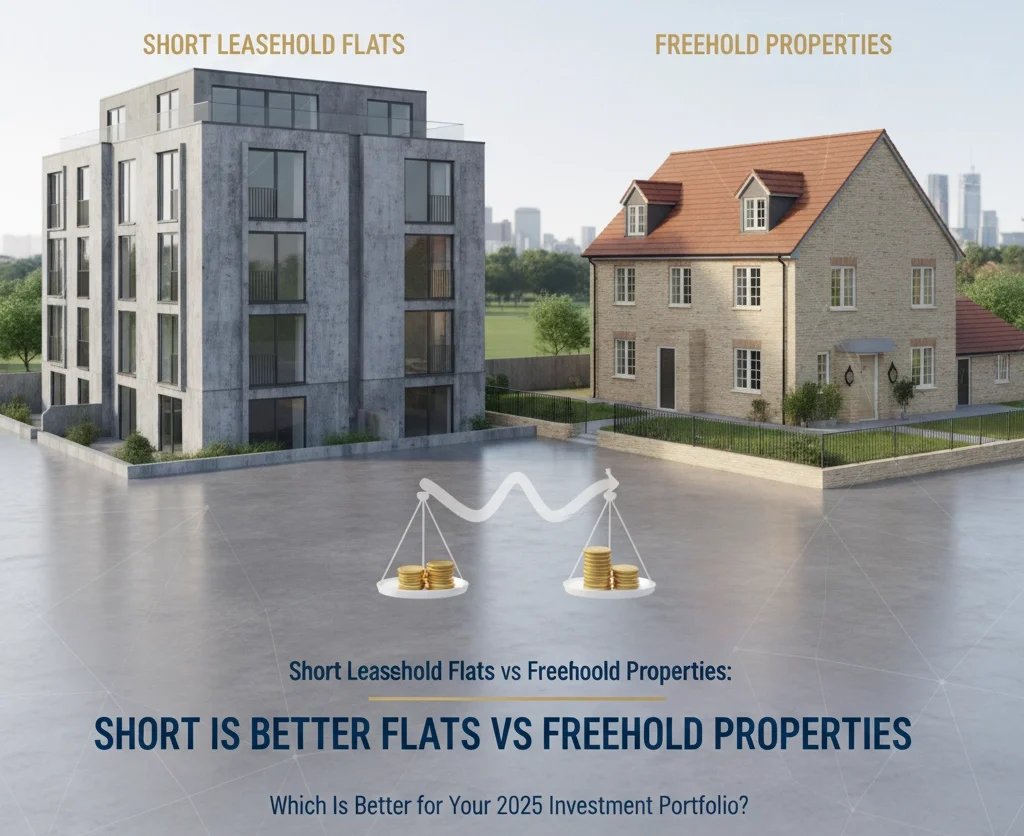Property investment in 2025 isn’t getting any simpler, is it? With mortgage rates still elevated and the market showing mixed signals across different regions, investors are facing some tough choices. One of the biggest decisions you’ll encounter: especially if you’re eyeing flats in city centres or looking at auction opportunities: is whether to go for short leasehold properties or stick with freehold investments.
It’s not a straightforward answer, and frankly, both options have their place in a well-rounded portfolio. But getting this choice wrong can seriously impact your returns, financing options, and future exit strategies. So let’s break down the real pros and cons of each approach.
The Short Leasehold Reality Check
Short leasehold flats: typically those with under 80 years remaining on the lease: often appear at property auctions with tempting price tags. There’s a reason for that discount, but it doesn’t automatically make them bad investments.
The Upside of Short Leaseholds
The most obvious benefit is the lower entry cost. You can often snap up a leasehold flat in a prime London location or thriving city centre for significantly less than a comparable freehold property. For investors working with limited capital, this can be your ticket into markets that would otherwise be out of reach.
Rental yields on leasehold flats can be impressive, particularly in urban areas where young professionals and students dominate the rental market. We’re seeing yields of 6-8% in cities like Manchester, Birmingham, and parts of London: numbers that look pretty attractive in today’s market.

Management can also be simpler with leasehold properties. Building maintenance, communal areas, and structural repairs are typically handled by the management company or freeholder. This means fewer 3am calls about boiler breakdowns and less time spent coordinating major repairs.
The Leasehold Downsides You Can’t Ignore
Here’s where things get tricky. As that lease gets shorter, your property becomes harder to mortgage and harder to sell. Most lenders won’t touch properties with less than 30 years remaining, and even those with 50-60 years can face restricted lending options.
The real kicker? Lease extensions are expensive. If you’re looking at a flat with 40 years left, extending it could cost anywhere from £15,000 to £50,000 or more, depending on the property value and ground rent. That’s a significant chunk of your investment returns right there.
Don’t forget about the ongoing costs either. Ground rent, service charges, and management fees can quickly add up, eating into your rental yields. And these costs have a habit of increasing over time: sometimes dramatically.
Freehold Properties: The Traditional Choice
Freehold properties might require a higher upfront investment, but they offer something that leaseholds can’t match: complete ownership and control.
Why Freehold Makes Sense
You own the building and the land it sits on. Forever. No ground rent, no lease extensions, no worrying about diminishing years affecting your property’s value. This gives you complete freedom to modify, improve, or develop the property as you see fit.
Financing is straightforward with freehold properties. Banks love them, mortgage products are readily available, and you won’t face any lease-related lending restrictions when it comes time to refinance or sell.

Capital appreciation tends to be more reliable with freehold properties. While leasehold flats can lose value as the lease shortens, freehold properties generally appreciate consistently with market conditions.
The Freehold Challenges
The higher purchase price is the obvious barrier. In prime locations, the difference between leasehold and freehold can be substantial: sometimes 20-30% or more.
You’re also responsible for everything. Roof repairs, structural issues, garden maintenance: it all falls on you. This means higher maintenance costs and more active property management, especially if you’re building a portfolio of multiple properties.
What We’re Seeing at Auction
From our perspective at Palace Auctions, both property types regularly come through our sales rooms, and the demand patterns tell an interesting story.
Short leasehold flats often attract investors looking for immediate rental income and those comfortable with more hands-on property management. We’ve seen some savvy investors specifically target leaseholds with 60-80 years remaining, giving them time to add value before needing to consider extensions.
Freehold properties tend to attract longer-term investors and those building buy-and-hold portfolios. These buyers are typically more focused on capital appreciation and want the security of permanent ownership.

The Numbers Game: Returns and Risks
Let’s talk real returns. In our experience, short leasehold flats in the right locations can generate higher initial yields: often 1-2% above comparable freeholds. But this advantage can quickly disappear when you factor in lease extension costs and potential financing difficulties.
Freehold properties typically offer more modest initial yields but provide steadier long-term returns through capital appreciation. They’re also easier to refinance, giving you more flexibility for portfolio expansion.
The risk profiles are quite different too. Leasehold properties carry lease-specific risks that can’t be diversified away: diminishing lease terms, escalating ground rents, and potential disputes with freeholders. Freehold properties have more conventional property risks around location, market conditions, and maintenance costs.
2025 Market Considerations
This year’s market conditions add some interesting wrinkles to the leasehold vs freehold debate. With mortgage rates higher than we’ve seen in years, the financing advantages of freehold properties become even more valuable. If rates continue to climb, those leasehold properties with financing restrictions could become increasingly difficult to sell.
The government’s ongoing discussions about leasehold reform might also impact values. While reforms could benefit existing leaseholders, the uncertainty isn’t helping short-term property values in the leasehold market.
Regional variations matter more than ever. In areas with strong rental demand and limited supply: think university towns and major employment centres: even short leasehold flats can perform well. But in softer markets, the additional complications of leasehold ownership might not be worth the initial savings.

Making Your Decision
So which is better for your 2025 portfolio? Honestly, it depends on your investment strategy, risk tolerance, and available capital.
Choose short leasehold flats if:
- You’re targeting high-yield urban investments with at least 60+ years remaining
- You want lower initial capital requirements
- You’re comfortable with active property management
- You’re focused on rental income over capital appreciation
- You understand and can budget for future lease extension costs
Stick with freehold properties if:
- You prioritize long-term capital growth
- You want maximum flexibility for future financing and sales
- You prefer simpler, more straightforward investments
- You’re building a buy-and-hold portfolio
- You want to avoid lease-related complications
The Bottom Line
Neither option is inherently better: they serve different investment strategies and risk profiles. Many successful property investors include both in their portfolios, using short leaseholds for immediate income generation and freeholds for long-term wealth building.
The key is understanding what you’re buying into. Don’t be swayed purely by lower purchase prices on leasehold properties without factoring in the total cost of ownership. Equally, don’t assume that freehold properties are always the safer choice if they’re stretching your budget to dangerous levels.
Whatever you choose, make sure you’re buying with full knowledge of the costs, risks, and opportunities ahead. In today’s market, informed decisions matter more than ever.
At Palace Auctions, we see both types of properties regularly achieving strong results for investors: but the successful buyers are always those who’ve done their homework first. Whether you’re eyeing that bargain leasehold flat or considering a freehold investment, make sure it fits your overall strategy and risk tolerance.
The property market isn’t getting any less complex, but with the right approach, both leasehold and freehold investments can play valuable roles in building wealth through property.
…..


